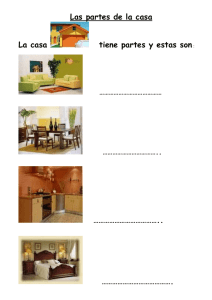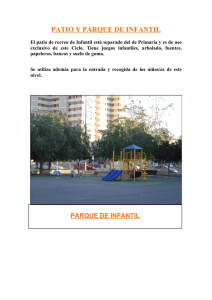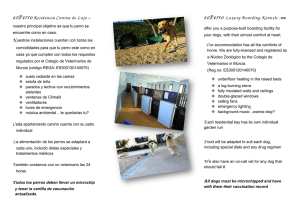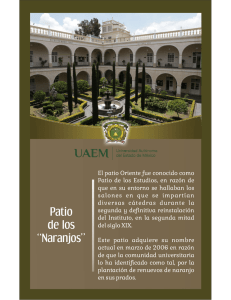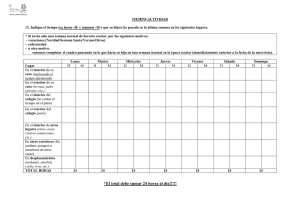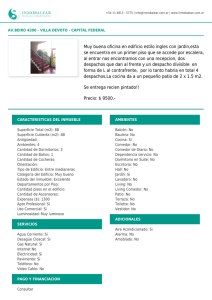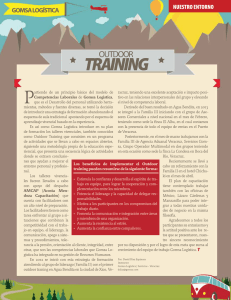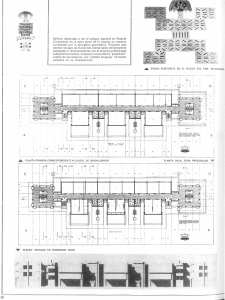pet dogs in outdoor dining areas
Anuncio
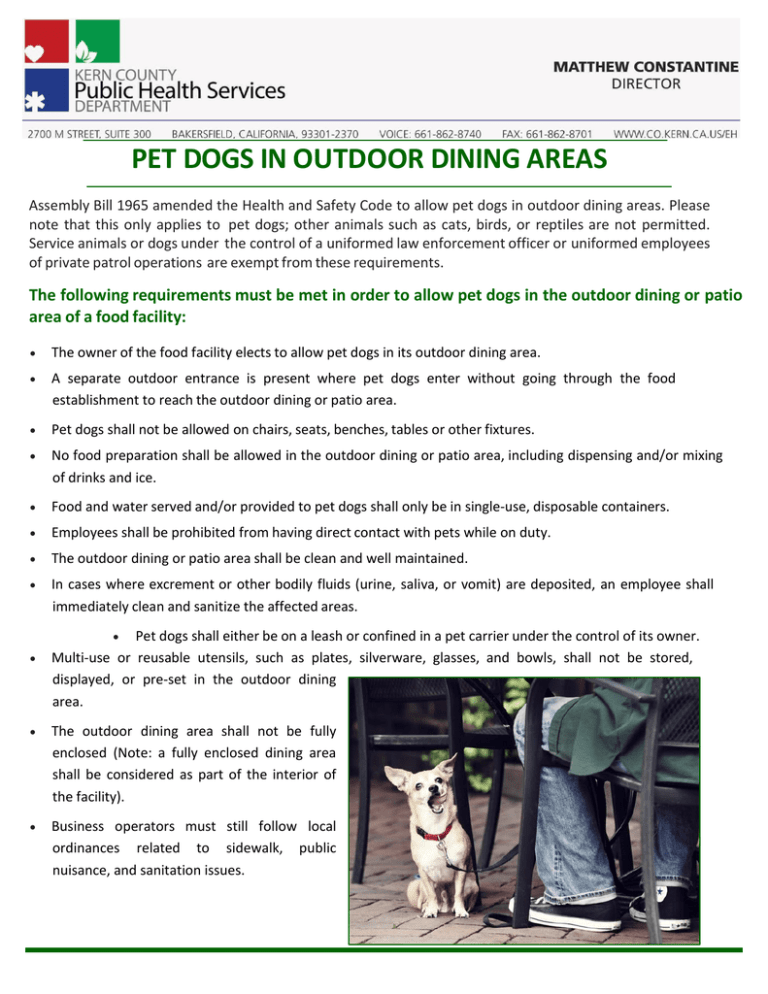
PET DOGS IN OUTDOOR DINING AREAS Assembly Bill 1965 amended the Health and Safety Code to allow pet dogs in outdoor dining areas. Please note that this only applies to pet dogs; other animals such as cats, birds, or reptiles are not permitted. Service animals or dogs under the control of a uniformed law enforcement officer or uniformed employees of private patrol operations are exempt from these requirements. The following requirements must be met in order to allow pet dogs in the outdoor dining or patio area of a food facility: The owner of the food facility elects to allow pet dogs in its outdoor dining area. A separate outdoor entrance is present where pet dogs enter without going through the food establishment to reach the outdoor dining or patio area. Pet dogs shall not be allowed on chairs, seats, benches, tables or other fixtures. No food preparation shall be allowed in the outdoor dining or patio area, including dispensing and/or mixing of drinks and ice. Food and water served and/or provided to pet dogs shall only be in single‐use, disposable containers. Employees shall be prohibited from having direct contact with pets while on duty. The outdoor dining or patio area shall be clean and well maintained. In cases where excrement or other bodily fluids (urine, saliva, or vomit) are deposited, an employee shall immediately clean and sanitize the affected areas. Pet dogs shall either be on a leash or confined in a pet carrier under the control of its owner. Multi‐use or reusable utensils, such as plates, silverware, glasses, and bowls, shall not be stored, displayed, or pre‐set in the outdoor dining area. The outdoor dining area shall not be fully enclosed (Note: a fully enclosed dining area shall be considered as part of the interior of the facility). Business operators must still follow local ordinances related to sidewalk, public nuisance, and sanitation issues. ANIMALES DOMESTICOS EN LOS PATIOS Y/O COMEDORES EXTERIORES DE LOS RESTAURANTES El proyecto de ley número 1965 enmendó El Código de Salud y Seguridad para permitir perros domesticados en los patios y/o comedores exteriores de los restaurantes. Tenga en cuenta que no se permiten otros animales como gatos, pájaros o reptiles. Esta ley no incluye a los perros de compañía, perros bajo el control de un oficial de la ley, o perros de empleados uniformados de operaciones privadas de patrulla mismos que son permitidos en estas y otras áreas del establecimiento. Para permitir a los perros domesticados en los patios de los comedores exteriores se deberán cumplir con los siguientes requisitos: El dueño del establecimiento decide permitir a los perros domesticados en el patio y/o comedor exterior. Debe haber una puerta por donde los perros puedan entrar y salir del patio y/o comedor exterior sin pasar por adentro del restaurant. No se permiten los perros domesticados sobre las sillas, los asientos, las bancas, las mesas u otros accesorios. No se permite la preparación de alimentos o bebidas, ni servir hielo en el patio y/o comedor exterior. La comida y el agua para los perros domesticados solamente se podrán servir en recipientes desechables. A los empleados que estén trabajando se les prohíbe que entren en contacto directo con los perros domesticados. El patio y/o comedores exteriores se deben mantener limpios y en buenas condiciones. En el caso en que haya excrementos u otras excreciones (orina, saliva, o vómito) el empleado deberá inmediatamente limpiar y desinfectar las áreas afectadas. Los perros domesticados deberán de estar bajo el control de su dueño por medio de una rienda o canasta para perros. Las vajillas y los cubiertos (sean desechables o no) no deberán ser almacenados en el patio y/o comedor exterior; así mismo estos utensilios no deberán ser colocados de antemano sobre las mesas. El patio y/o comedor exterior no deben de estar completamente cubiertos. Si el patio y/o comedor están completamente cubiertos, se considerarán como parte del interior del establecimiento. Los encargados de los establecimientos deben de cumplir con las leyes relacionadas con las aceras y banquetas, incomodidades públicas y asuntos de salubridad.

